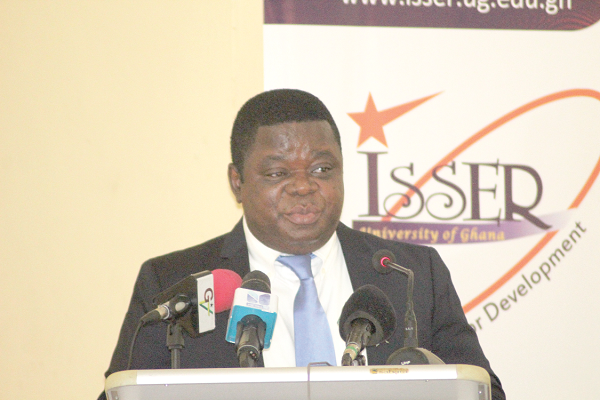The Director of the Institute of Statistical, Social and Economic Research (ISSER), Professor Peter Quartey, has dismissed claims of a dollar shortage in Ghana, urging importers and traders to use formal banking channels for their foreign exchange needs.
Speaking in an interview on Joy FM on Monday, July 21, 2025, Professor Quartey said the banking system continues to handle the bulk of the country’s foreign exchange transactions and remains adequately resourced.
According to him, challenges mainly arise when individuals insist on physical cash or choose to operate outside the formal financial system.
“I don’t think there is a shortage of forex on the market,” he said. “If you have an account, you want to import, and you have all the necessary documentation, there’s no problem. There’s no limit on how much you can pay.”
Professor Quartey noted that about 80 per cent of foreign exchange transactions pass through the banking sector.
He attributed the frustrations some importers face to a preference for cash transactions, particularly among members of the Ghana Union of Traders Association (GUTA).
“Those who want physical cash but haven’t deposited physical cash, that is where the problem is,” he said.
“Where in the world do you trade in physical cash? Let’s educate our members and the public on the proper use of forex.”
His remarks follow complaints from some traders and business owners who say they are unable to obtain dollars through the banking system. Some allege that transfers are delayed even for documented transactions involving amounts as low as US$200,000.
Reacting to these concerns, Professor Quartey stated that such reports were difficult to reconcile with the information he had received from the banks.
“It defeats my imagination how that could happen,” he said. “If you are a large importer and you channel your proceeds through the bank, I don’t foresee this problem.”
GUTA has in recent weeks warned that its members are being forced to rely on the black market, where exchange rates are significantly higher.
The Bank of Ghana, in response, has maintained that there is adequate foreign exchange in the system and that it is working with commercial banks to address any operational challenges.
Earlier this year, the central bank injected US$1.4 billion into the forex market in the first quarter alone, supporting sectors such as fuel and energy.
While acknowledging the central bank’s interventions, Professor Quartey stressed that trader behaviour was also an important factor.
He called for more transparency and discipline in foreign exchange transactions to help maintain stability.
“The solution lies not just with supply but also with how we use what is available,” he said.
“If we continue to depend on informal systems, we will keep creating the perception of a shortage when in fact the market is well-resourced.”
Professor Quartey encouraged trader associations and other stakeholders to promote formal banking processes and discourage the use of physical cash for large transactions.
He warned that reliance on informal channels would only worsen market instability and undermine legitimate businesses.
